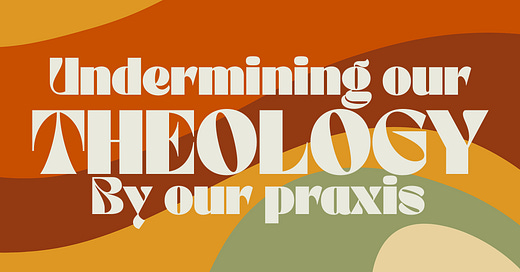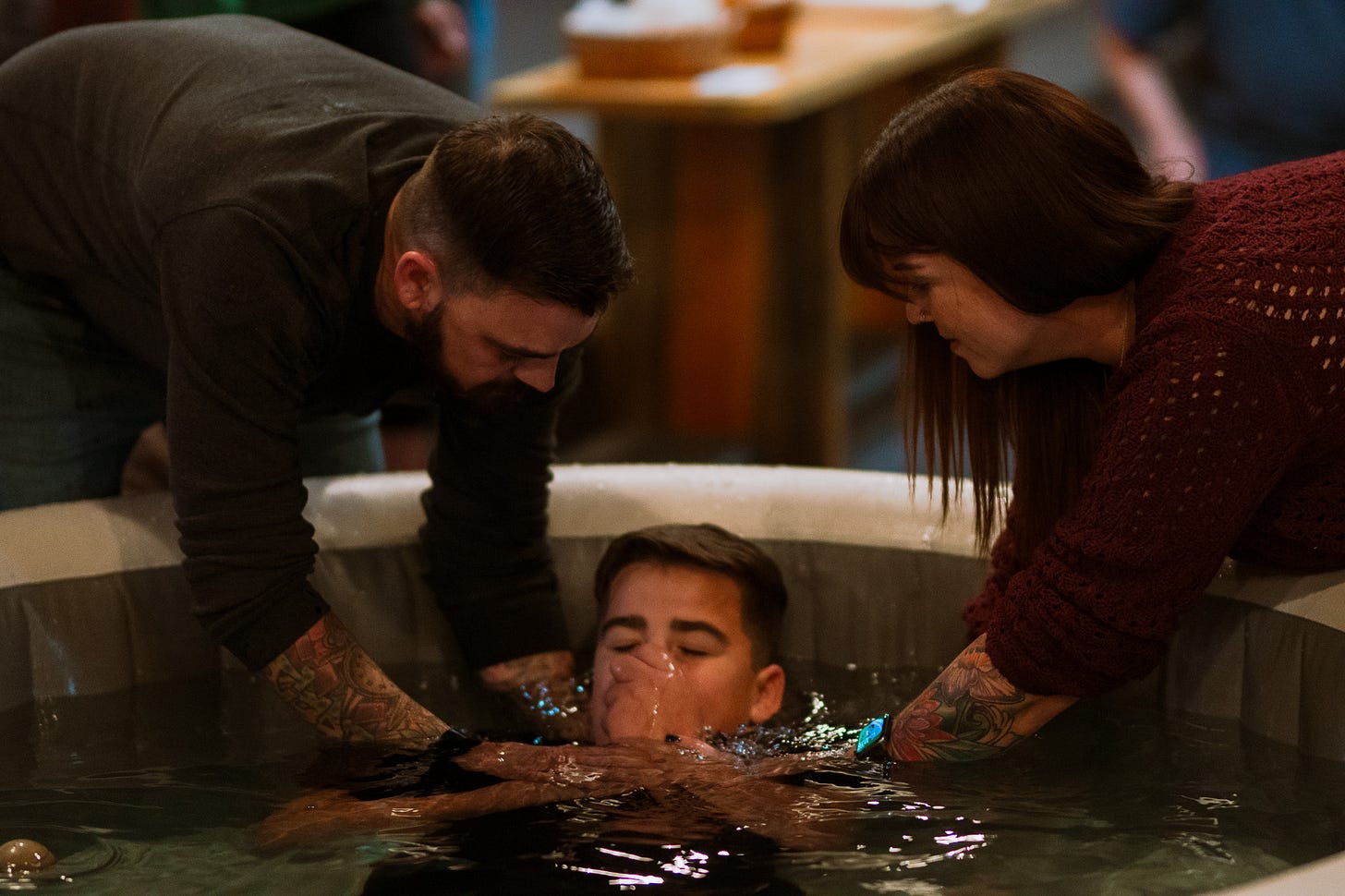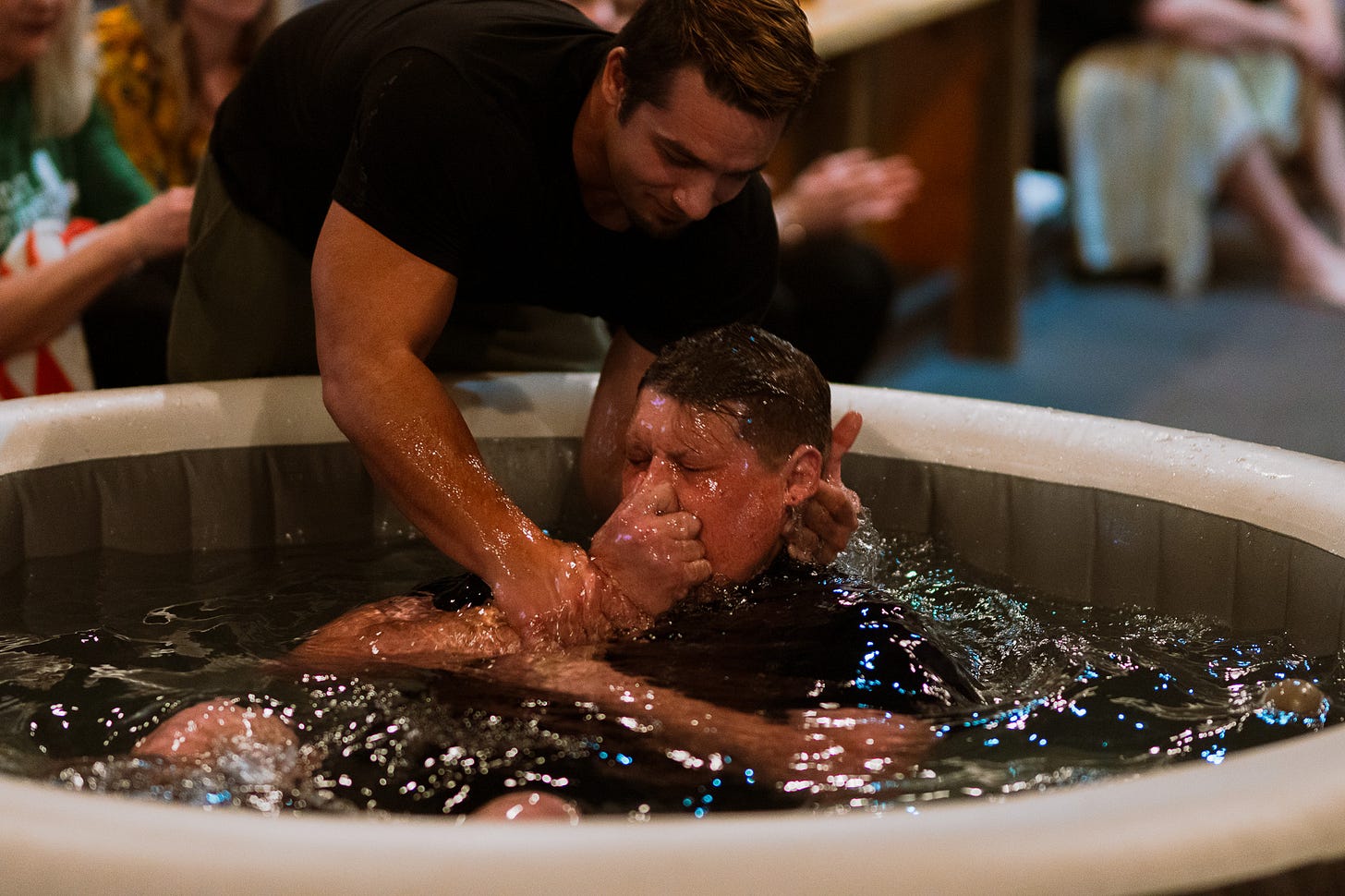Undermining Our Theology by Our Praxis
Thoughtful church leaders likely have strong theological viewpoints, yet it's very common for a church's practices to undermine those views. Let's talk about it in relation to "everyone gets to play."
Throughout the course of church history, church leaders have often assumed that ministry and sacraments and, for lack of a better phrase, churchy-things had to be carried out by official ordained church leaders such as (P)riests and (P)astors. The “clergy” were in charge of “doing the stuff” such as baptizing people, presiding over the Eucharist, preaching, and… answering church email. Okay, maybe that last one is a more recent phenomonon… but the point still stands. The bulk of church history and the common assumption of many people is that church leaders are the ones who do ministry.
Yet out of the Protestant Reformation came a renewed awareness of a biblical concept — the priesthood of all believers (cf. 1 Pet. 2:4-10). This led many children of the Reformation, for example, to allow for non-clergy to carry out ministry functions. As Michael Bird notes:
“Baptist and Anabaptist churches have strongly emphasized the priesthood of all believers, with the implication that presidency of the Lord’s Supper is not restricted to clergy.” (Michael F. Bird, Evangelical Theology: A Biblical and Systematic Introduction, 784)
Everyone Gets to Play.
John Wimber famously brought the priesthood of all believers to the forefront of the evangelical-charismatic tradition with his punchy statement that everyone gets to play. Wimber essentially wanted to encourage the Church to realize that all followers of Jesus were indwelt with the Holy Spirit and everyone had spiritual gifts and everyone could participate in “doing the stuff,” continuing Jesus’ mission.
Within the evangelical-charismatic tradition, this most often plays out in a number of ways:
Everyone gets to play in relation to praying for the sick.
Everyone gets to play in relation to personally sharing the gospel.
Everyone gets to play in relation to global missions.
Everyone gets to play in relation to singing and praying.
One of the hallmarks of Wimber’s legacy is that thousands of people attended his conferences and within the context of his emphasis on equipping the saints, John would teach them how to engage in what is often described as “kingdom ministry” (prophecy, healing, deliverance, etc.). Why? Because he believed that everyone gets to play, the catchy phrase summarizing the implications of the Priesthood of All Believers.
Undermining Our Theology By Our Praxis.
The thing is, it’s one thing to know a doctrine or memorize a catchy phrase and something different to put it into practice. If we say that we believe that everyone gets to play but only allowed ordained clergy members to pray for people, we’d all pretty clearly understand how that practice is undermining our theology, right?
But what about other areas of church life where our practices may, in fact, undermine the very theological viewpoints we say we hold to? To be more specific, I think the Sacraments are precisely the type of examples we need to think a bit more deeply on. If we reject the type of apostolic succession popularized by Roman Catholicism (and I most certainly do), there is no reason to prevent genuine followers of Jesus who are not ordained clergy to baptize new believers or preside over Communion. Our “sacramental charismatic” pneumatology should rightly recognize that the Spirit is at work in the actual celebration of one’s conversion and remembrance of Christ’s death. If we only allow ordained clergy members to baptize people or lead Communion, aren’t we unintentionally undermining the very theology we say is so important to our movement?
I think so.
But I think we need to go deeper here. Church leadership needs to regularly evaluate all areas of ministry to discern whether or not her practices are undermining her views. What we really want is for our practices to support and embody our values.
Everyone Doing the Stuff.
To take it one step further in our biblical theology, virtually all Christians recognize that the Great Commission (Matt. 28:18-20) was given to the entire church. All followers of Jesus have a responsibility to make disciples and discipleship is immediately connected to baptism and learning about Jesus’ teachings.
This past weekend, the church that I serve had our quarterly Baptism Sunday (which is one of our favorite services of the year). We ended up with thirteen people getting baptized and two things stood out to me as both particularly moving and embodying the very heart of “everyone gets to play.”
First, my friends Ronnie and Cylia baptized their son and daughter and it was one of the most beautiful things I’ve ever seen. Their children had made the decision to follow Jesus and wanted to get baptized and what could be more meaningful than to be baptized by your parents and to baptize your own children? It was beautiful.
Second, my friend Andrew… who was recently baptized earlier this past year, baptized my new friend Michael. Seeing the recently baptized continue the tradition and practice by helping another publicly connect to the death, burial, and resurrection of Jesus was incredibly powerful.
What do you think? What are other practices that undermine our theology?
And to be clear… I’m not suggestion that pastors shouldn’t baptize people or lead Communion. I’m suggesting that they shouldn’t be the only ones to do it and that by allowing others to do it, you have a great teaching opportunity to flesh out an important value!
About the Author
Luke Geraty is a pastor-theologian in northern California. With a few theology degrees and nearly twenty years of pastoral leadership, Luke loves the Bible, theology, fly fishing, coffee, and books. All opinions are his own and not the views of any other organizations he’s affiliated with. You can follow him on Twitter, Instagram, and subscribe to his YouTube.







This was so good!